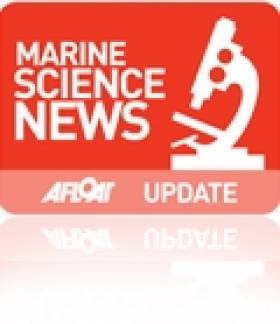Displaying items by tag: National Oceanography Centre
Irish Lead Mission to Find New Life on the Ocean Floor
An Irish-led marine research mission has set off to discover strange new lifeforms that inhabit the deepest parts of our oceans.
In collaboration with scientists from the UK’s National Oceanography Centre, the team sailed from Galway earlier this week bound for the Mid-Atlantic Ridge to investigate life at 3,000m below the surface of the sea.
Using a remotely operated vehicle (ROV) they will explore for the first time the 45o North MAR hydrothermal vent field, where vents spew mineral-rich seawater heated to boiling point in the earth’s crust. These are home to a rich variety of marine life that thrives in complete darkness on bacteria fed by chemicals.
Patrick Collins from NUI Galway’s Ryan Institute will lead Ireland's marine biological team investigating this unique ecosystem, which could tell us not only about how life might have evolved on other planets, but may also be a rich source of new biochemical processes with valuable medical and industrial applications.
"There is potential here to put Ireland on the global map as a serious player in deep sea science," said Collins. "This is all the more timely with the exploitation of deep sea and hydrothermal vents for precious metals and rare earth minerals now a reality.”
The mission carries geochemists, marine biologists, marine geologists, marine geneticists and technicians from Ireland and the UK as well as a three-person TV crew from National Geographic.
They will spend 25 days at sea and will be posting a regular blog on scientistsatsea.blogspot.com.
























































